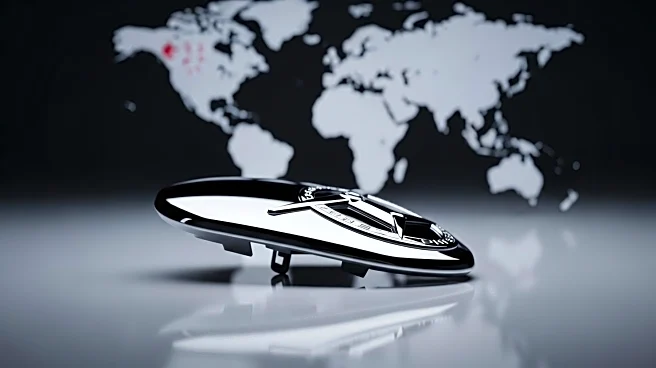What's Happening?
Mercedes-Benz Group has announced a significant decline in its sales for the third quarter of 2025, with a total of 525,300 cars and vans sold. This represents a year-on-year decrease of 12% for the quarter and 9% for the year-to-date, with slightly more than 1.6 million units sold so far in 2025. The Core and Entry product ranges have underperformed compared to the previous year, although the Top-end cars segment saw a modest 5% year-on-year increase. Despite this, the overall growth for Mercedes-Benz in 2025 remains flat. The decline in sales is attributed to challenges in the Chinese and US markets, which have impacted the company's performance.
Why It's Important?
The decline in sales for Mercedes-Benz highlights the challenges faced by automotive manufacturers in navigating global market dynamics, particularly in key regions like China and the US. These markets are crucial for luxury car brands, and fluctuations can significantly impact overall performance. The decrease in sales may affect Mercedes-Benz's strategic planning and financial outlook, potentially leading to adjustments in production, marketing, and distribution strategies. Additionally, the performance of the Core and Entry product ranges suggests a need for innovation and adaptation to changing consumer preferences and economic conditions.
What's Next?
Mercedes-Benz may need to reassess its strategies in the Chinese and US markets to address the sales decline. This could involve enhancing product offerings, increasing marketing efforts, or exploring new partnerships to boost sales. The company might also focus on expanding its electric vehicle lineup, as indicated by the 22% increase in electric vehicle sales compared to the previous quarter. Monitoring market trends and consumer behavior will be crucial for Mercedes-Benz to regain momentum and achieve growth in the coming quarters.
Beyond the Headlines
The sales decline could prompt Mercedes-Benz to explore deeper collaborations with technology firms to enhance vehicle features and appeal to tech-savvy consumers. Additionally, the company might invest in sustainability initiatives to align with global environmental goals, potentially attracting eco-conscious buyers. The evolving automotive landscape, with increasing competition from electric vehicle manufacturers, may drive Mercedes-Benz to innovate and differentiate its offerings.










